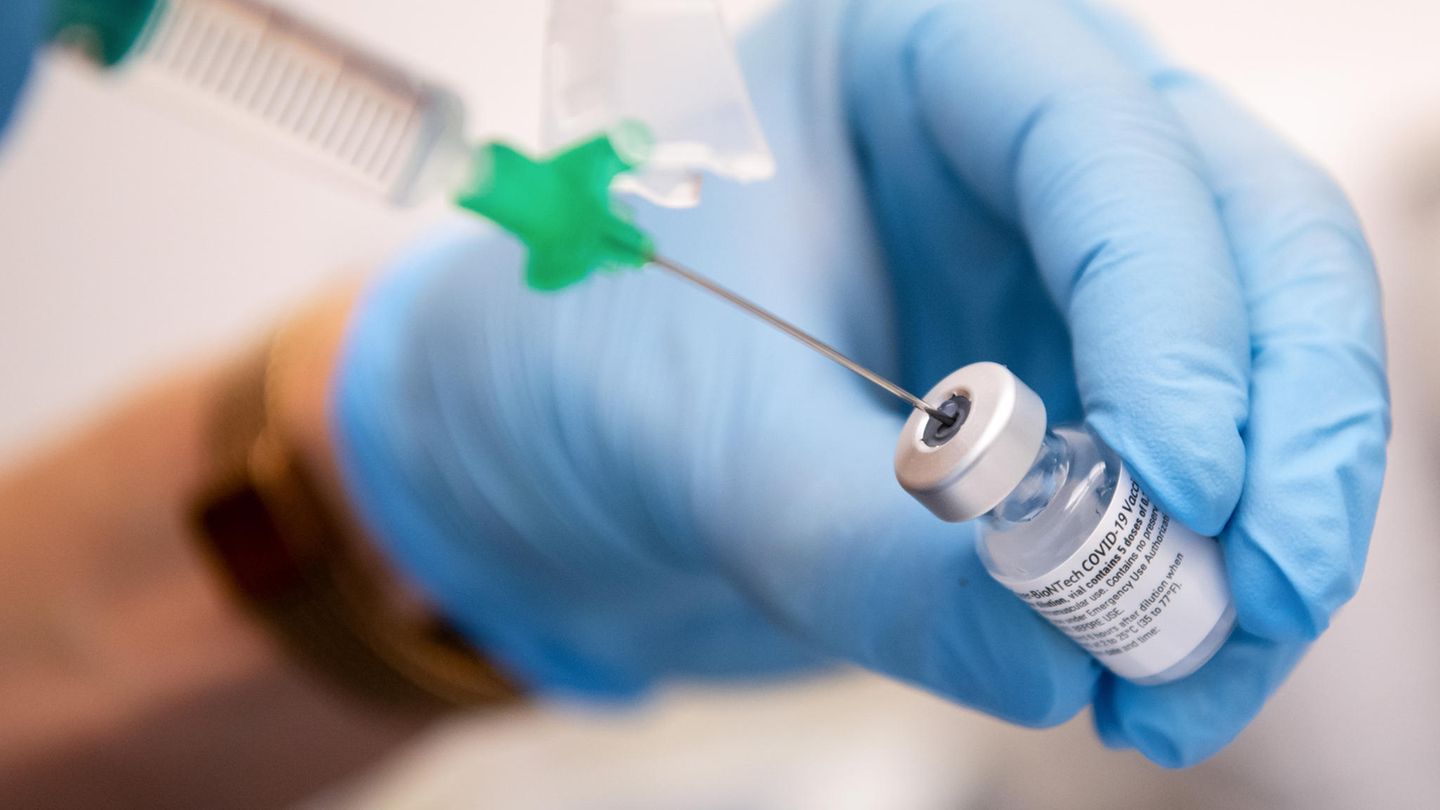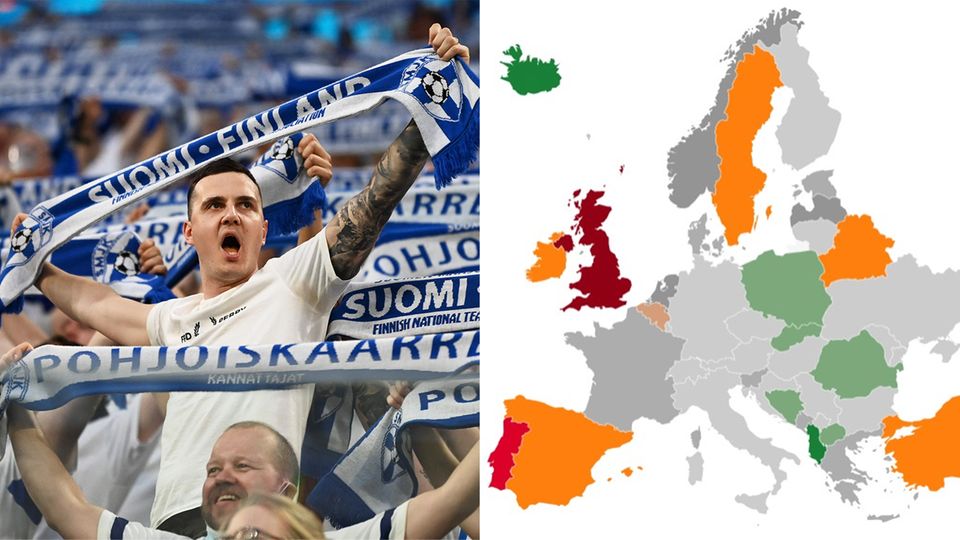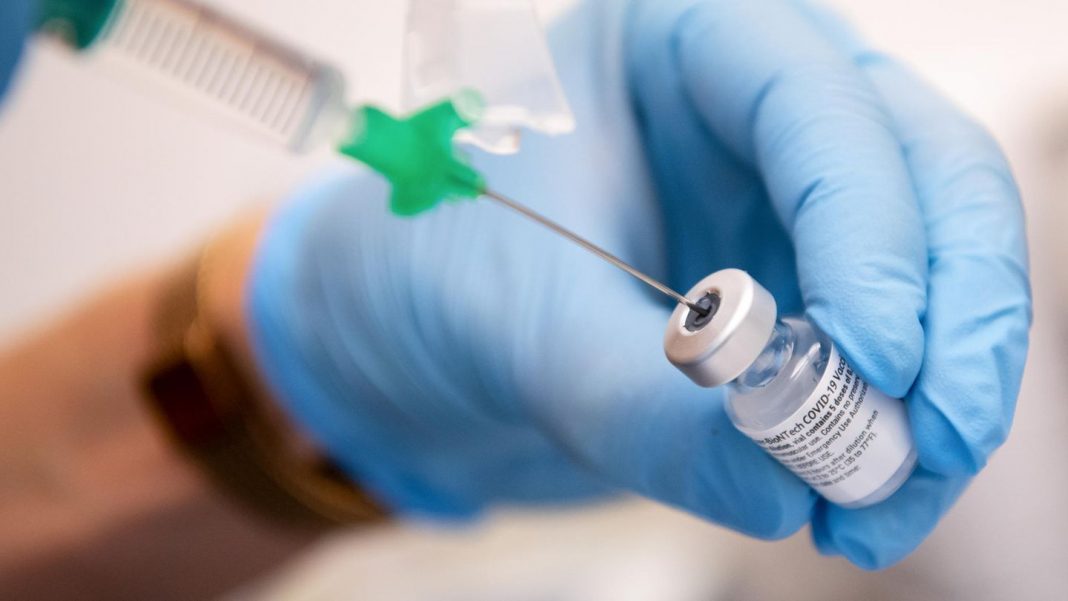U.S. Department of Health and Human Services
Heart muscle inflammation after Corona vaccination – what is known about it

The U.S. CDC is investigating cases of heart muscle inflammation after vaccinations with Biontech and Moderna
© Sven Hoppe / DPA
Reports of heart muscle inflammation after corona vaccinations have been around for some time. Now the US health authority CDC has presented figures.
US experts see the occurrence of hundreds of cases of heart muscle inflammation after a corona vaccination as a connection to the so-called mRNA vaccines as “probable”. This conclusion suggests the data available so far, it was said on Wednesday at a presentation in a group of experts convened by the US health authority CDC. However, the benefits of vaccination against the coronavirus would “significantly outweigh the risks”. There should also be a new warning for vaccines.
The experts examined the suspicion that the mRNA vaccines from Biontech / Pfizer and Moderna can occasionally cause inflammation of the heart muscle (myocarditis) or the pericarditis (pericarditis) in young people. To this end, they evaluated data on more than 300 confirmed cases of myocarditis in adolescents and young adults who had recently been vaccinated against Corona with an mRNA vaccine.
“Myocarditis is a rare but not a new disease,” explained pediatric cardiologist Matthew Oster. So far, it is assumed that the disease is usually caused by viruses. “It seems that the mRNA vaccines can be a new trigger,” Oster said.
SPD health expert Karl Lauterbach also commented on the CDC figures on Twitter. According to them, the course is very harmless in 95 percent of cases. A Covid disease also has “significantly more frequent and more severe complications” for children, according to Lauterbach.
Most cases after second dose of vaccination
By June 11, 323 patients under the age of 30 had been diagnosed with myocarditis or pericarditis after corona vaccination in the United States. Almost 150 suspected cases are still being examined, the US health authority said. This is contrasted with more than 50 million doses of vaccine administered to 12 to 29 – year-olds. The number of diseases is therefore relatively low, but higher than would be expected for this age group.
309 of the patients had to go to the hospital, where nine are still being treated. At least 218 patients had already fully recovered from their symptoms at the time of data collection. Most cases occurred in young men and within a week of the second dose of vaccination. In young women, the risk was significantly less increased after the second dose of vaccination. There is no confirmed death.
CDC chief Rochelle Walensky said last week that these cases are “rare” and that “the vast majority”of those affected have” fully recovered with rest and supportive treatment.”
Since children are significantly less likely to become seriously ill with Covid-19, corona vaccinations are sometimes controversial among this age group. But the head of the department of infectious diseases in Children at Cohen Children’s Medical Center in New York, Lorry Rubin, pointed out to the AFP news agency that more than 3000 children have been hospitalized for Covid-19 in the United States since the start of the pandemic and more than 300 have died.
Inflammation of the heart muscle – what is it?
With inflammation of the heart muscle, cells in the muscle tissue of the heart, the so-called myocardium, become inflamed. Heart muscle inflammation is therefore also referred to as myocarditis. The trigger may be, for example, a delayed flu or a previous infection of the gastrointestinal tract with viruses. In principle, however, other triggers are also possible.
According to the German Heart Foundation, people who do not spare themselves sufficiently long after an infection are particularly at risk of developing myocarditis. “So do not get back into sports activities after an infection until you really feel fit again,” says the foundation’s website.

Symptoms include fatigue, shortness of breath, chest pain or heart rhythm disturbances such as heart stumbling. However, in principle, the inflammation can also cause nonspecific or no symptoms. The course can differ greatly depending on the person. If symptoms such as fatigue last longer than usual after an infection or are particularly strong, a doctor should be consulted in any case.
Regardless of the severity of the disease, sufferers should spare themselves. “Doctors recommend abstaining from heavy physical exertion for six months,” writes the German Heart Foundation. More severe forms of heart muscle inflammation can also be treated with drugs that stabilize the pumping function of the heart and reduce inflammation.
Source: CDC-Centers for Disease Control and Prevention / Deutsche Herzstiftung


